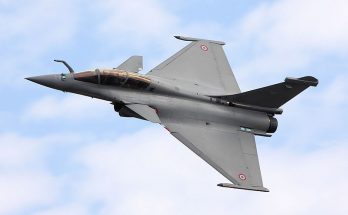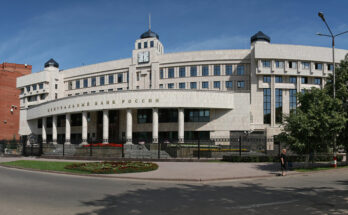Faced with an increasingly confrontational situation with neighboring Turkey in the Aegean and Mediterranean Seas, Greece is embarking on an upgrade of the Hellenic Armed Forces a decade after the country’s sovereign debt crisis put military modernization on hold.
Under the latest capabilities upgrade initiative announced by Prime Minister Kyriakos Mitsotakis on September 12 all three major service branches of the Hellenic Armed Forces will be bolstered via modernization acquisitions.
The centerpiece of Mitsotakis’ announcement involves the plan to purchase 18 French-built Rafale combat aircraft for the Hellenic Air Force. The procurement will be accompanied by the upgrade of ten of the Air Force’ Mirage 2000 jet fighters to the more advanced 2000-5 standard. This will give the Hellenic Air Force a total of 35 Mirage 2000-5s, to go with the previous ten units upgraded in 2004 and the 15 Mirage 2000-5 standard units ordered in 2000. A EUR260 million deal for maintenance of the Mirage 2000-5 fleet was already contracted for with French companies Dassault Aviation, Safran Military Engines and Thales back in December 2019.
The Rafales, meanwhile, will serve as a replacement for the older, non-modernized Mirage 2000s purchased back in 1985. The Greek purchase will likely include 6 new-build models and 12 second-hand units (F3-O4T variants delivered to the French Air Force between 2012 and 2018), the latter intended to defray some of the overall cost.
The Hellenic Navy will also benefit from the new modernization effort. Tasked with meeting the challenge presented by an increasingly capable and expanding Turkish Navy the Navy will launch a program involving the procurement of four new multi-role frigates, likely MEKO 200 frigates from Germany’s ThyssenKrupp Marine Systems (TKMS).
In addition, Greece will undertake the upgrade of the Hellenic Navy’s existing fleet of four MEKO 200HN frigates procured in the 1990s.
Prior to the country’s sovereign debt crisis that erupted in 2009-2010, Greece had outlined a requirement for four to six new multimission frigates (a firm order for four new ships, plus an option for two additional ones).
The sought-after frigates – ostensibly the FREMM design from Naval Group – were slated as a replacement for the Hellenic Navy’s Elli class frigates originally commissioned in the late 1970s and early 1980s.
However, the economic and financial fallout that Greece suffered during the sovereign debt crisis made this targeted acquisition impractical and now – after inking a letter of intent (LOI) with France in October 2019 for the purchase of two midsize, multimission Belharra class frigates from France’s shipbuilding prime Naval Group – Greece appears intent on retaining surface combatant commonality by opting for the German MEKO 200 design.
Finally, the Hellenic Navy will receive four MH-60R Romeo naval multi-mission helicopters from Lockheed Martin-Sikorsky to operate from the new MEKO 200 frigates.
On the firepower front all three service branches will benefit from missile acquisitions, including new anti-tank weapons for the Hellenic Army, new heavy-duty torpedoes for the Navy and new guided missiles for the Air Force.
The military upgrade plans announced on September 12 by the prime minister may – or may not – mark the end of Greece’s interest in the next-generation F-35 combat aircraft.
Reports emerged in April 2019 of Greece weighing a potential acquisition of up to 30 Lockheed Martin F-35s as a replacement for the oldest F-16C/Ds in the Hellenic Air Force’s inventory. Prime Minister Mitsotakis reiterated this interest during a visit with President Trump at the White House back in January, and then Defense Minister Nikos Panagiotopoulos announced shortly thereafter plans to acquire 24 F-35s at the cost of $3 billion. That supposed acquisition would parallel the ongoing modernization of 85 fighters in the Hellenic Air Force’ F-16 fleet to the F-16V Viper (Block 70/72) variant.
For now, however, any F-35 procurement may remain a longer-term goal sacrificed in the short-term for immediate – and more economically pragmatic – capabilities upgrades.
The announcement of a fresh investment package for defense marks a turning point after a decade in which severe economic and financial pressures reduced military enhancements to a few select platform upgrades, transfers of used armored vehicles from U.S. Army surplus stocks, and a single “new” acquisition involving 10 additional CH-47D Chinook heavy-lift transport helicopters through the U.S. government-to-government Foreign Military Sales (FMS) program.
Greece has long placed a high priority on defense spending in order to maintain a strategic deterrent against Turkey, its larger and well-armed neighbor with which it shares disputes in the Aegean and over the divided island of Cyprus. But the result of years of defense cuts (coupled with Turkey’s own burgeoning military expenditures) is that what once provided the Greek military with high-end technology and force-multiplier leverage against Turkey’s quantitative manpower has steadily eroded.
Long-standing Hellenic Armed Forces modernization plans were effectively frozen in 2010, with only a few rare exceptions emerging post-2014. Instead of moving forward on new equipment, most capitalization funding provided during the 2006-2014 modernization interregnum had already been spent, meaning such funding earmarked within annual budgets during that timeframe was used to pay off legacy projects such as the controversial Archimedes Program (Type 214 submarine acquisition from Germany) and Roussen (Super Vita) class fast attack craft acquisition.
Instead of fresh purchases, a $1 billion list of defense upgrade programs was approved by the Parliamentary Committee on Defense Procurement and Contracts on July 30, 2014, which helped finance the upgrades of the Hellenic Army’s M270 multiple launch rocket systems (MLRS) and the Hellenic Navy’s five P-3B Orion maritime patrol aircraft.
Now, despite the effects of the COVID-19 pandemic on the Greek economy, the government is compelled to address the strengthening of the Hellenic Armed Forces. Included in the list of planned materiel acquisitions is also a plan to increase the number of troops in military service by 15,000 over the coming five years. All of this should provide Greece with improved military capability and a rejuvenated local defense industry.
As tensions with Turkey continue to rise amidst competing economic exclusive zone (EEZ) claims and longstanding disputes involving Cyprus, Greece is left with little choice but to strengthen the military. The latest announcement by the government marks the beginning of that process.

Dan Darling is Forecast International’s director of military and defense markets. In this role, Dan oversees a team of analysts tasked with covering everything from budgeting to weapons systems to defense electronics and military aerospace. Additionally, for over 17 years Dan has, at various times, authored the International Military Markets reports for Europe, Eurasia, the Middle East and the Asia-Pacific region.
Dan's work has been cited in Defense News, Real Clear Defense, Asian Military Review, Al Jazeera, and Financial Express, among others, and he has also contributed commentary to The Diplomat, The National Interest and World Politics Review. He has been quoted in Arabian Business, the Financial Times, Flight International, The New York Times, Bloomberg and National Defense Magazine.
In addition, Dan has made guest appearances on the online radio show Midrats and on The Media Line, as well as The Red Line Podcast, plus media appearances on France 24 and World Is One News (WION).




